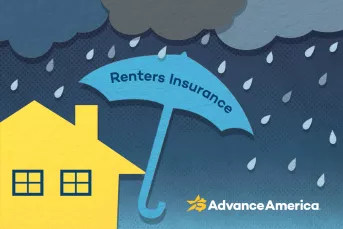

Emergency Fund Guide: What Is It and How to Build One
Life happens, and whether it’s a surprise car repair, trip to the ER, or another unexpected expense, having an emergency fund can make all the difference. Learn what an emergency fund is, why it matters, and how you can start building one regardless of your financial journey.
KEY TAKEAWAYS
- An emergency fund is a financial cushion for unforeseen expenses or job loss.
- Even small savings add up — you don’t need a lot to get started.
- Budgeting methods like 50/30/20 can help you consistently set money aside, even if you’re living paycheck to paycheck.
What is an emergency fund?
An emergency fund is a pool of money you can pull from when you face an unforeseen expense, like a surprise medical bill or a leaky roof. It can also be a lifeline in the event you lose your job and are struggling to pay the bills.
According to The State of Savings report from Yahoo Finance/Marist Poll, one-third (33%) of the respondents said they couldn’t cover their bills for even one month if they lost their income.
6 reasons you need an emergency fund
Unexpected bills and purchases can cause you to miss payments or go into debt just to keep up. That’s why having an emergency fund is so important. Here are a few reasons why you might need an emergency fund to fall back on:
1. Medical bills
Healthcare can quickly put you into debt, even if you have insurance. An emergency fund can help cover costs associated with a sudden illness, surgical procedure, or costly prescription — so you can focus on your health without worrying about finances.
2. Car repairs
It often feels like car issues happen at the worst moments. Whether it’s a dead battery, flat tires, or transmission issue, even the smallest problem can put you into debt.
With savings set aside in an emergency fund, you can handle car repairs quickly and confidently, so an unexpected breakdown doesn’t break your budget.
3. Home repairs
Leaky roofs, broken water heaters, and plumbing issues have a way of showing up when you least expect them. Home repairs can easily cost hundreds or thousands of dollars, forcing you to put off other necessary expenses.
Having some money set aside in an emergency fund means you can take care of urgent repairs right away, protecting yourself, your home, and your finances.
4. Unemployment
Losing your job is one of the most detrimental financial issues you can experience. This situation makes it difficult to buy groceries, let alone pay bills.
With a big enough emergency fund, you can cover living expenses like rent, utilities, and gas while looking for a new gig.
5. You’re living off one income
If you’re a one-income household, you may not have extra spending money, making your finances feel stretched. An emergency fund can alleviate some of the strain by acting like a safety net, helping you avoid financial stress when emergencies arise.
6. You’re self-employed
If you’re self-employed with an unpredictable income, an emergency fund is even more important. It can provide a much-needed financial cushion during slow periods, allowing you to continue operating without immediate financial pressure.

How to build an emergency fund
1. Calculate how much money you’ll need
Take a close look at your monthly bills and expenses to determine how much money you spend in a single month. Multiply this number by the number of months you want your emergency fund to cover.
2. Make a budget
A budget is a spending plan that considers your income and expenses. There are several budgeting strategies that could help you stay on track:
- The envelope budget method is a great way to prevent overspending. Simply put the designated amounts of cash in each labeled envelope and only use the money in that envelope for that category.
- The 50/30/20 budget method divides your income into categories: o 50% for needs, like bills and groceries o 30% for wants, like dining out and entertainment o 20% for savings
- Zero-based budgeting gives every dollar a “job,” which can help you prioritize your emergency fund savings.
3. Cut back on expenses
If you’re overspending, look at your expenses to see where you might cut back. Maybe you don’t need the gym membership you rarely use, or you can prepare meals at home instead of dining out. Get creative and reduce or get rid of as many expenses as possible.
4. Pay down your debt
The more you spend on your car payment, credit cards, student loans, or other debts, the less you’ll have to allocate toward an emergency fund. Focus on paying down debt so you can save more cash for emergencies.
➢RELATED: Can You Use a Line of Credit to Pay Off Debt?
5. Use employer matches
To promote emergency savings, your employer may offer matching funds or payroll deductions. Employer matches refer to contributions made by your employer to your retirement savings plan, such as a 401(k).
You might be able to use these options to help you build your emergency fund. Find out if your employer offers any of these perks and take advantage of them if they do.
How much should an emergency fund be?
Many financial experts recommend saving three to six months’ worth of expenses in your emergency fund.
However, even if you don’t think you can save up that much, you should still build some sort of emergency fund. Saving something is better than nothing, and having extra money can help if you’re in a financial pinch.
What to do if you need money now but don't have an emergency fund
If you don’t have an emergency fund to cover an immediate expense, you might need a personal loan to help you get by. We offer several options, including:
Applying takes just minutes, and once approved, you may receive the funds in your bank account as soon as the same day.
Emergency fund FAQs
Where do I put my emergency fund?
Common options include a dedicated savings account, an easily accessible money market account, or even a certificate of deposit (CD).
Many banks, credit unions, and online banking solutions offer tools like mobile check deposit to make saving even more convenient.
Can I create an emergency fund if I’m living paycheck to paycheck?
Even if you’re living paycheck to paycheck, you can still build an emergency fund by cutting down on unnecessary expenses. When should I start building an emergency fund? The sooner you start saving for your emergency fund, the better. Even if it’s not much, any amount saved could help you out the next time you face an unexpected expense.
Notice: Information provided in this article is for informational purposes only. Consult your attorney or financial advisor about your financial circumstances.


